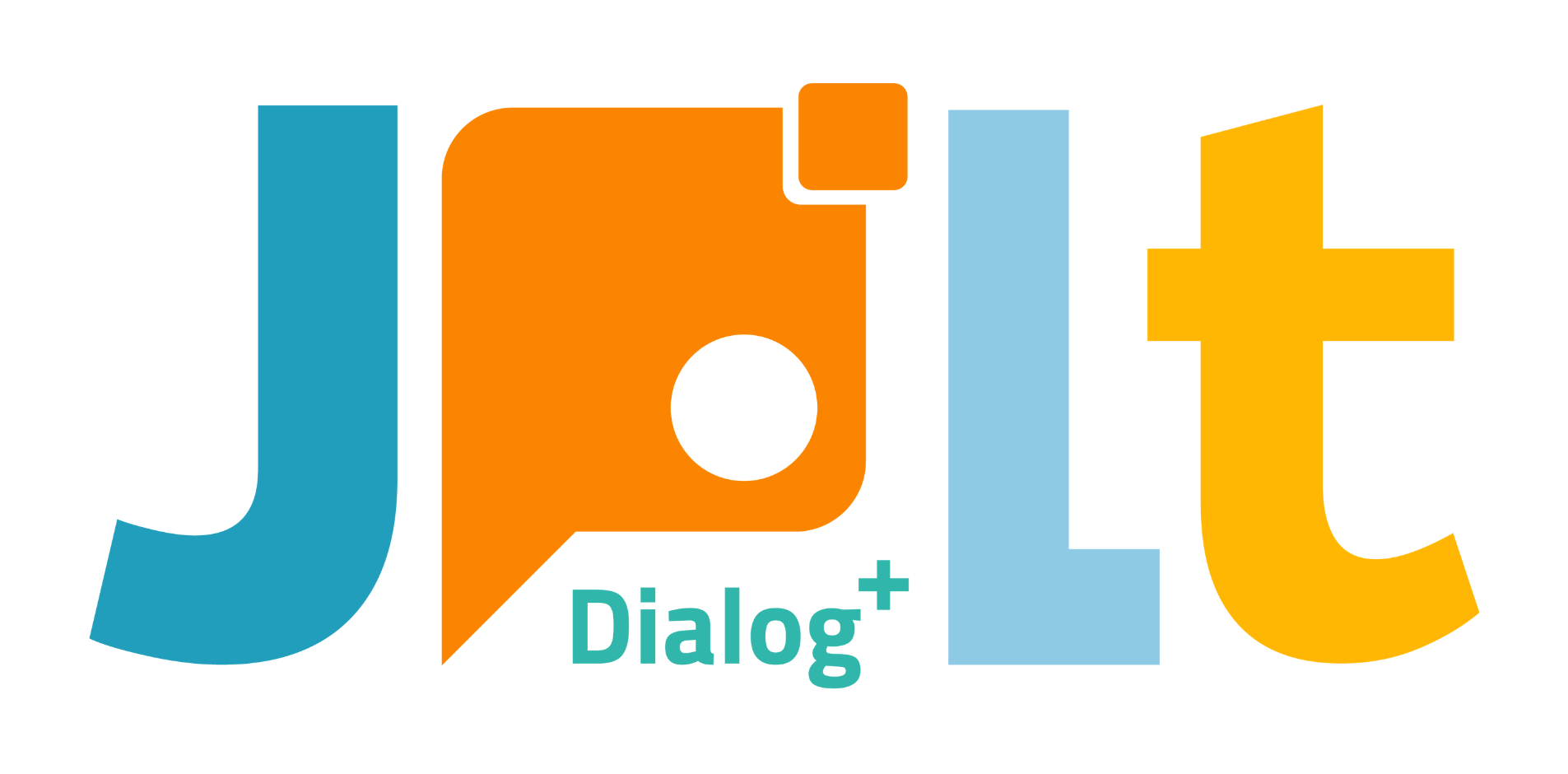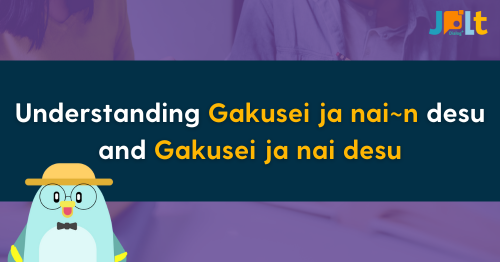[Japanese Language Learning]
Differences Between “学生じゃないんです”
(Gakusei ja nai n desu) and “学生じゃないです” (Gakusei ja nai desu)
Are “学生じゃないんです” (Gakusei ja nai n desu) and “学生じゃないです” (Gakusei ja nai desu) the same in meaning?
“Desu,” “~N desu,” there are so many different ways to say things that it can get confusing…
Can “Desu” and “N desu” be used interchangeably in all situations?
Although both “学生じゃないんです” (Gakusei ja nai n desu) and “学生じゃないです” (Gakusei ja nai desu) convey the same general meaning, there is actually a subtle difference in nuance.
In this article, Eri-san a staff member at JPLT Online Japanese Language School, will explain these differences in detail. Let’s learn when to use each one more appropriately!
The Difference Between “です” (Desu) and “んです” (n desu)
First, let’s briefly explain the difference between “です” (Desu) and “んです” (N desu):
- です (Desu): A standard polite expression used to show respect to the other person.
- んです (N desu): A more emphatic way of saying “です” (Desu) that gives a more polite impression. It is often used in spoken language to convey a sense of friendliness and softness.
Using “学生じゃないんです” (Gakusei ja nai n desu) and “学生じゃないです” (Gakusei ja nai desu)
Let’s consider these two expressions in the context of the sentence “学生じゃない” (Gakusei ja nai, meaning “I am not a student”):
学生じゃないです (Gakusei ja nai desu):
- A standard polite expression that shows respect to the other person.
- Can be used as a general polite way of speaking, regardless of the relationship or situation.
- Example: Appropriate for formal situations like interviews or when meeting someone for the first time.
学生じゃないんです (Gakusei ja nai n desu):
- Emphasizes “です” (Desu) to give a more polite impression.
- Often used in spoken language, it can convey a sense of friendliness and softness.
- Example: More natural in conversations with friends or colleagues.
Specific Examples of Usage
When “学生じゃないんです” (Gakusei ja nai n desu) is appropriate:
- When a friend asks, “How have you been lately?” and you respond, “Me? I’m not a student. I’m working now.”
- When a store clerk asks, “Are you a student?” and you respond, “No, I’m not a student.”
When “学生じゃないです” (Gakusei ja nai desu) is appropriate
- When an interviewer asks, “Are you currently a student?” and you respond, “No, I’m not a student.”
- When meeting someone for the first time and they ask, “Are you attending school?” and you respond, “No, I’ve already graduated, so I’m not a student.”
Summary:
The Difference Between “学生じゃないんです” (Gakusei ja nai n desu) and “学生じゃないです” (Gakusei ja nai desu)
Both “学生じゃないんです” (Gakusei ja nai n desu) and “学生じゃないです” (Gakusei ja nai desu) express the meaning of “I am not a student,” but the nuance is different:
- 学生じゃないです (Gakusei ja nai desu): A standard polite expression that can be used in a wide range of situations.
- 学生じゃないんです (Gakusei ja nai n desu): A more polite expression often used in spoken language, conveying a sense of friendliness and softness.
Choosing the appropriate expression based on the relationship with the other person and the situation will make your Japanese sound more natural and polite.
Additional Notes
- The Difference Between “です” (Desu) and “ます” (Masu)
“です” (Desu) is used for assertions, while “ます” (Masu) is used for actions or states. Example: 私は学生です (I am a student – assertion). 私は毎日勉強します (I study every day – action).
- Combining “です” (Desu) and “ます” (Masu)
The “ですます調” (Desu-masu tone) is a polite way of speaking often used in formal situations like business contexts. Example: ご質問ありがとうございます。承知いたしました (Thank you for your question. Understood).
Conclusion
Mastering the use of “です” (Desu) and “んです” (N desu) is crucial for understanding the depth of the Japanese language. We hope this article helps you expand your range of Japanese expressions. If you want to learn more Japanese in detail, consider attending a Japanese language school or studying Japanese materials.
For those who want to progress more efficiently in their Japanese studies, the JPLT Online Japanese Language School is also recommended. At JPLT, which gathers Japanese learners from around the world, you can take one-on-one lessons or group lessons with native teachers. Various courses are available, such as preparation for the Japanese Language Proficiency Test (JLPT) and practice for daily conversations, so you can learn according to your level and goals.





